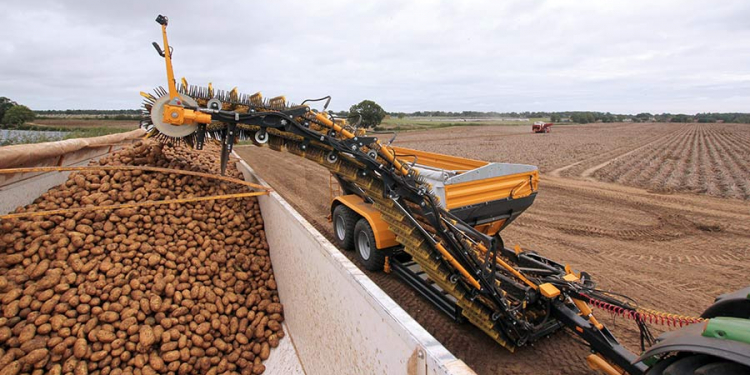Farmers with fields potato cultivation in the Upper Palatinate no longer allowed to water potatoes and tomatoes with water from the river. From Luhe-Wildenau to Mariaort, the Naab is contaminated with bacteria of the dangerous mucus disease.
A putrefactive disease threatens the potato and tomato cultivation in the Upper Palatinate: The State Institute for Agriculture has banned farmers from watering potatoes and tomatoes with water from the Naab. According to the authorities, the river from Luhe-Wildenau to the confluence with the Danube near Mariaort is contaminated with the pathogen causing the mucus disease (Ralstonia solanacearum).
Bacteria destroy plants
This putrefactive disease quickly spreads and destroys potato and tomato plants. It cannot be combated directly. The European Union classifies the mucus disease as a quarantine disease because of its dangerousness.
Affected farmers must therefore expect financial losses and considerable requirements, including breaks in cultivation, cleaning of machines and storage areas or destruction of the affected harvest.
Infestation initially not recognizable
The insidious: Often you only recognize the infestation when it has spread intensively. Minor infestation, which can hardly be seen in the plants, can only be detected with laboratory tests.
The mucous disease shows up as its name suggests: with whitish mucus that emerges from the stem and infected tubers. The putrefactive bacteria can survive in the soil as well as in surface water. The bacterium is harmless to humans and animals.
Origin of contamination unknown
Where the bacteria in the Naab come from is unknown, according to the State Office for Agriculture. The ban imposed by him on watering and sprinkling potato and tomato plants is unlimited. It is only lifted again when, in repeated examinations, no more pathogens causing the mucous disease are found in the water samples.








